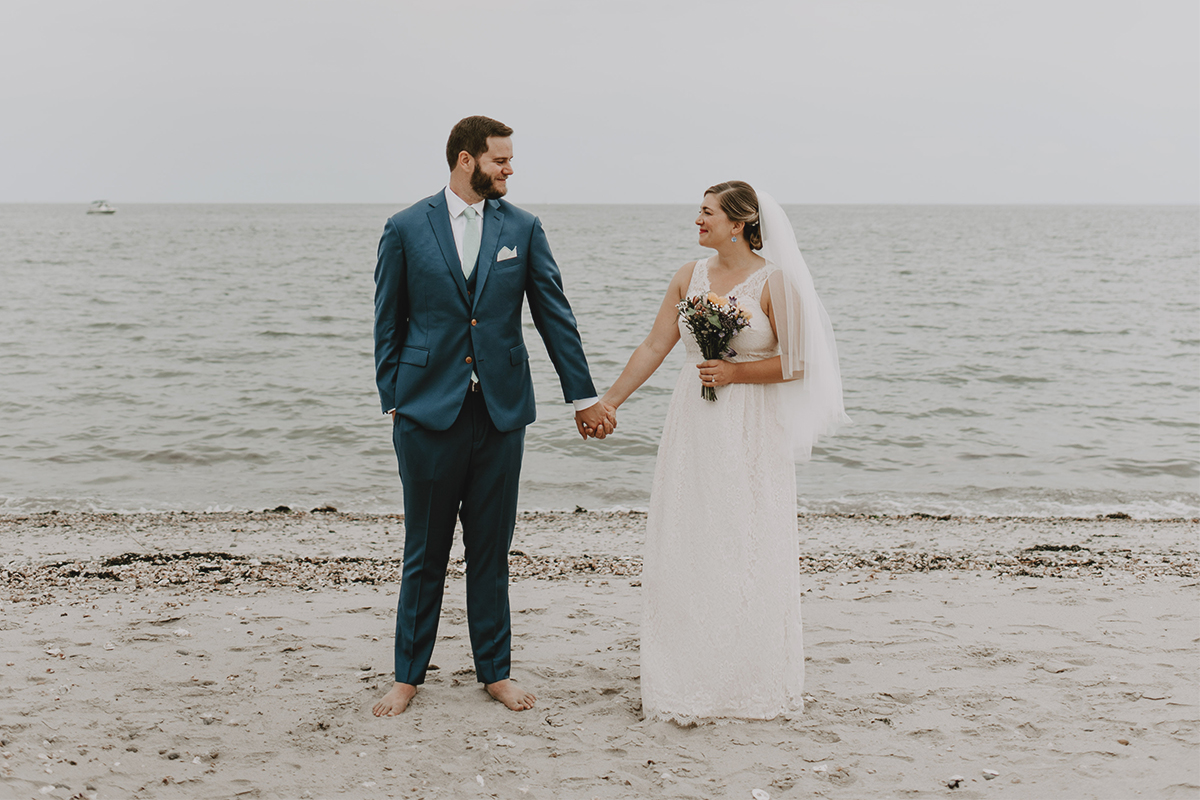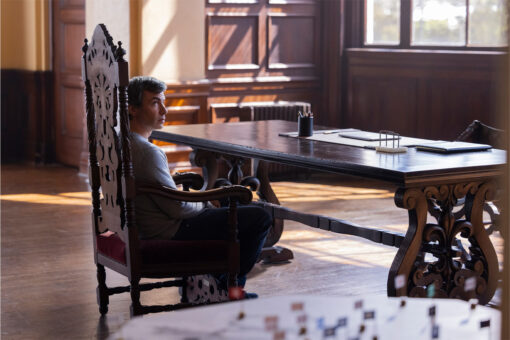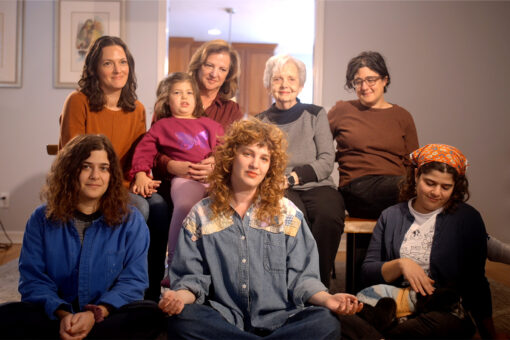A baptized Jew and a lapsed Catholic walk into a bar. They discover a shared love for bourbon and craft beer (they are both hipsters, after all), date for a very long time (too long according to the lapsed Catholic and almost all of their family and friends), and eventually decide to get married. There is a beautiful proposal, extended families meeting for the first time, and a date, venue, and vibe chosen for the special day. They choose a photographer, a caterer, a wedding planner, another wedding planner when that wedding planner quits in an unprofessional blaze of glory, and everything starts to fall into place.
And then, oh yeah, there’s that whole wedding ceremony part. Now what?
I was raised in an interfaith household where my parents swung back and forth between Catholicism (hence the baptized Jew) and Judaism (I was named in Jerusalem and studied abroad in Be’er Sheva). They landed on a choose-your-own-adventure religion, and my siblings and I have varying degrees of observance, the only constant being Hanukkah candles and Christmas trees all mixed together. My now husband was raised Catholic, and while he’s fallen out with the faith aspect of the religion, he still connects deeply with his Catholic culture, the philosophical teachings, and the memory of sitting in mass with his late grandmother.
All that said, in many ways, we define ourselves as a Jewish family. We’ve taken some interfaith classes and discussion groups, traveled with Honeymoon Israel, and feel like we’re moving past the fumbling in the dark phase of figuring it out. So when it came time to plan our wedding, and by extension our lives together, it was important that both of our traditions be represented, but also that our wedding announced to our family, friends, and those random people we’ve never met but were for some reason wildly important to our parents that we’re a Jewish family.
We’re a family that lights Shabbat candles, we’re a family that remembers our history, we’re a family that has a deep connection to Israel. Yet we’re also a family that attends Christmas Eve mass and has season tickets to Boston College football, where the campus is decorated with more crosses than the Ben-Gurion airport has mezuzahs.
Somehow, our wedding ceremony and party needed to reflect that richness, all while being open and accessible to most guests who had never been to a Jewish wedding.
Now I’ll also add that before planning our own wedding, my then fiancé and I had been to a total of zero Jewish weddings. How do you make this grand announcement about being a Jewish family when you have no idea what goes into the actual ceremony?
First, you Google. My well-meaning fiancée jokingly Googled “Irish rabbi” and came up with a lovely north of Boston rabbi-for-hire whose philosophy seemed pretty in line with ours. Then we realized we wanted to include both traditions, so co-officiants seemed to make more sense. But not a priest, because frankly neither of us is super comfortable with that, and so we landed on a friend. But a rabbi and a friend seemed mismatched and unbalanced. So we ditched the rabbi and went with two friends. Great! Co-officiants! One, a Jew, who has her Master’s in Theological Studies from Harvard’s Divinity School, and the other, a Catholic, who has his degree in Catholic Philosophy from Boston College. What could go wrong?
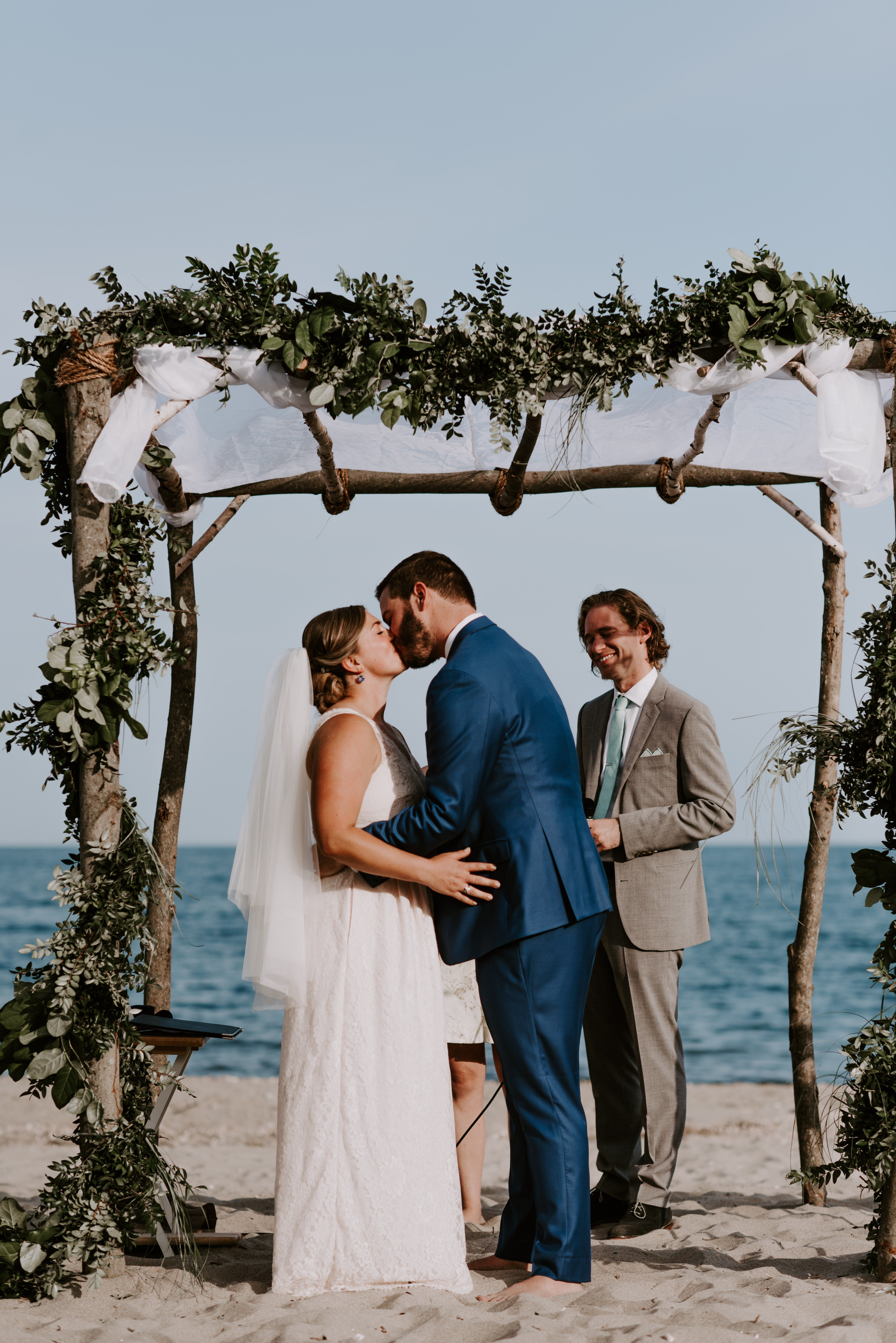
For starters, we had to figure out what traditions had meaning to us and how to explain why they had meaning to 120+ people. Then we needed to figure out how to recognize both backgrounds and faiths without disrespecting either (like how do you include Catholic elements without mentioning Jesus? Spoiler alert: it’s hard!).
So we headed back to our good friend Google, but also read books (s/o to The New Jewish Wedding and Celebrating Interfaith Marriages: Creating Your Jewish/Christian Ceremony), interviewed friends, family, and my favorite clergy on meaningful elements from their weddings, and talked a lot about language. We also went to our first Jewish wedding and, luckily for us, it was pretty traditional, so we had a lot to learn from.
And so slowly, slowly, in nine drafts, two FaceTimes, and one in-person conversation at a bachelor party with a definitely off-duty officiant, we landed on a largely Jewish structure for our ceremony with many English and secular interpretations of traditional Jewish prayers and blessings, with a little sprinkling of Catholicism thrown in for good measure.
So what did that actually look like?
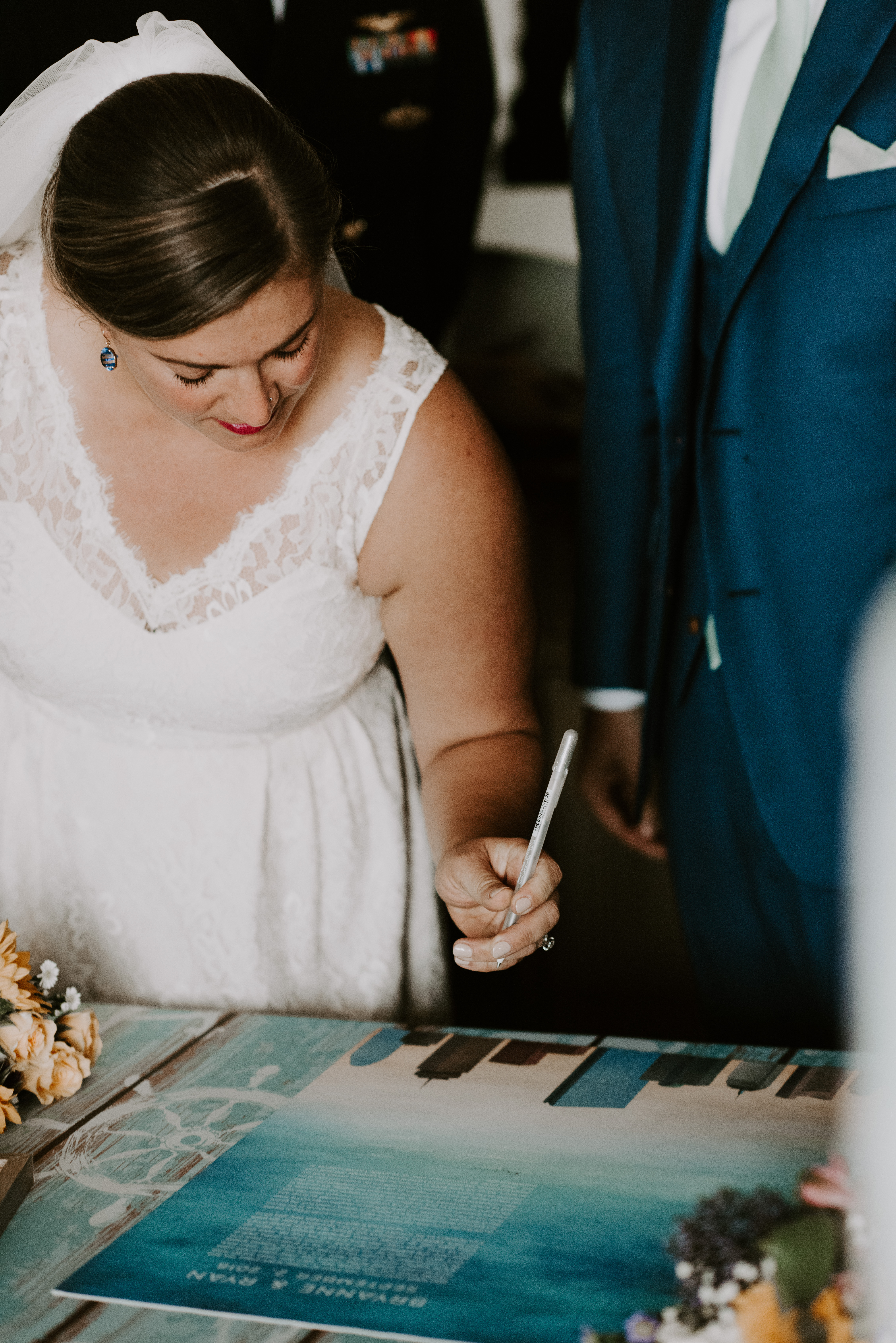
We were married under a chuppah (a temporary structure signifying a bride and groom’s first home together) hand-built by my Jewish-ritual-loving-but-very-Catholic father after signing a ketubah (Jewish marriage contract) decorated with the Boston skyline representing where our lives together began. Our officiants split up the speaking parts. Our Catholic friend took the lead on framing the day and sharing about us and our relationship. He blessed us, our rings, and officially married us together. Our Jewish friend took the lead on ritual, blessing the wine (signifying joyful occasions), the shehecheyanu (a prayer where we give thanks for the delight of reaching a new moment), and framing our sheva brachot — our seven blessings that religiously tied us together as a unit. For our blessings, we chose English interpretations and invited friends and family whom we love and whose marriages we admire to bless us with love, friendship, and joy. At the end, my husband broke the glass (after putting on a single shoe — did I mention we were barefoot on a beach?), and he and I took a deep breath as part of our yichud (a few moments alone for the new husband and wife post-wedding).
It was beautiful and personal and so unbelievably meaningful. I cried during most of it. Even re-reading our notes to write this piece I cried.
It felt very Jewish. It felt very unique. It felt very us.
Images via Madeline Rose
